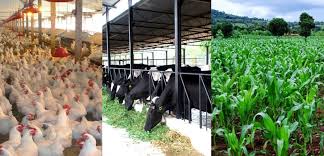The process of registering a farming business in South Africa is very similar to that of registering any other kind of business. Like with the majority of entrepreneurial endeavors, registration is based on the size of your business.
Read also: How To Start Fish Farming In South Africa
How To Register a Farming Company In South Africa
Get to know the Format
To know more about registering your business, you need an understanding of some of the terms used in the process:
Sole proprietorship – The South African Revenue Service defines a sole proprietorship as a business that is owned and operated by a natural person or an individual. These businesses are not considered legal entities and are not separated from the individual running the business.
The person running this business is called the proprietor, and this type of business does not necessarily need to be registered. When it comes to taxation, the sole proprietor is obliged to submit their tax returns as an individual, including the income they receive from their business.
Pty Ltd – Also transcribed as “(Pty) Ltd”, this abbreviation means “Proprietary Limited” and is used to indicate that the business is a private company. Private companies are considered separate legal entities and have rights and duties of their own. The owners of private companies are the shareholders, and under the Companies Act 71 of 2008 (the Companies Act), there is no limit to the number of people who can hold shares in a company. Because private companies are registered as separate entities, the company also needs to be registered as a taxpayer in its own right.
Co-operative – The CIPC defines a co-operative as a “business where a group of people with common needs get together voluntarily and establish a co-operative to address the needs that an individual cannot address alone”. Farming communities often combine their buying power to form co-operatives.
Memorandum of Incorporation (MoI) – Under the Companies Act, businesses need to have an MRI to register. The MoI is the document that stipulates the conduct of the company. The Act provides certain requirements that are mandatory parts of the MoI, but businesses are allowed to add or adjust provisions, as long as those provisions are on par with the Act.
How much does it cost to register a company in South Africa?
A company registration may vary between R125 and R475 (R125 for a private company, R475 for a non-profit company registered without members)
How much does it cost to start a farming business in South Africa?
A farm is an area of land that is devoted primarily to agricultural processes with the primary objective of producing food and other crops; it is the basic facility in food production. On average, it could cost you between R20,000 to 50,000 to start your chicken farm, depending on how big or small you’re starting.
How do I register my livestock farming in South Africa?
Download or obtain the application form from extension officers, magistrates’ offices, stock-theft units of the South African Police Service, or from the Registrar: Animal Identification in Pretoria. Complete and sign the application form.
Do farmers pay taxes in South Africa?
Section 26(1) stipulates that the taxable income of any person carrying on pastoral, agricultural, or other farming operations shall, in so far as the income is derived from such operations, be determined by the Act but subject to the First Schedule.
Where do I register my Farm Business In South Africa?
You can register your Farm online on the Companies and Intellectual Property Commission (CIPC) website, or on the http://Bizportal.gov.za website, a platform created by the CIPC that offers company registration and related services.
You can also register your company via a bank, including Nedbank and First National Bank.
Another way to register your business is to outsource the admin to businesses that have the expertise to offer company registration services and related services. Many of them provide packaged services that include company registration and related services such as SARS consulting, labor registrations, CIDB registration, and upgrades, tax returns/ compliance, or accounting services



